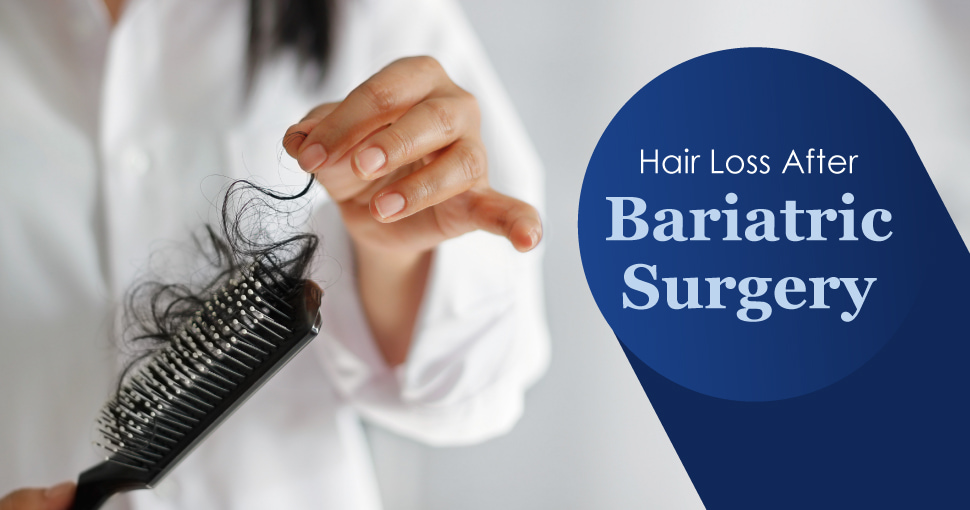Hair Loss After Bariatric Surgery

Hair loss following weight loss surgery can be a cause for concern, however, understanding its causes can help to alleviate distress. Triggered by trauma or stress, this type of hair loss is called telogen effluvium, and it is a reversible condition that is very common. Connected to the hair growth cycle, episodes of telogen effluvium typically start abruptly and can last anywhere between one and six months.
The growth cycle of human hair has two stages. 90% of hair follicles are in the growth stage of the cycle, also known as the anagen phase, at any given time. Approximately 5-15% of follicles are in the resting stage of the cycle, also known as the telogen phase, at any given time and remain there for between one and six months with an average of three months. When a traumatic or stressful event causes hair to enter the resting stage prematurely it’s referred to as telogen effluvium. This condition can be either acute or chronic and an episode following a traumatic event can cause as much as 70% of hairs on the scalp shed approximately 2 months after the triggering event.
What Causes Hair Loss After Weight Loss Surgery?
In addition to trauma and stress, telogen effluvium can be triggered by hormonal fluctuations, vitamin deficiencies, and even certain medications. When a triggering event occurs, more hair follicles enter the telogen phase and whatever hair is in this phase at the time of surgery is the hair you can expect to shed. When those follicles reenter the anagen phase, the hairs begin to grow, the old hair follicle is released, and the hair is shed. That’s why the hair loss occurs anywhere from one to six months following surgery.
Common Reasons for Telogen Effluvium
- Bodily injury, illness, or surgery
- Chronic disease
- Hormonal imbalances
- Vitamin deficiencies
- Heavy metal toxicity
- Certain medications
Preventing Hair Loss After Weight Loss Surgery
It’s normal to lose 5-15% of your hair following surgery and massive weight loss and the good news is that it rarely lasts more than six months. It’s important to visit your primary care doctor and ensure that there are no comorbidities contributing to your hair loss, such as chronic illnesses or thyroid disease.
While there’s no way to completely prevent hair loss after bariatric surgery, adherence to your dietary prescription of limited calories and diverse protein intake can help. That, along with a low-sugar protein supplement and a bariatric-specific multivitamin can help diffuse hair shedding.
Learn More About Hair Loss After Bariatric Surgery
If you have questions about weight loss surgery, recovery, or would like to schedule a consultation with one of our world-class bariatric surgeon, please contact us today.